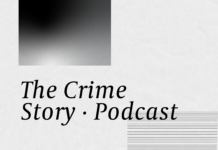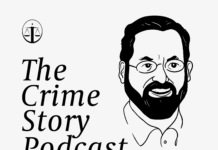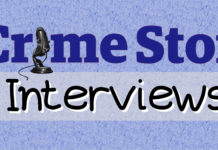In 1990, 19-year-old Marty Tankleff was wrongly convicted of the 1988 murder of his parents. After spending over 17 years in prison, a new investigation uncovered the real murderers and his conviction was vacated. Tankleff is now a lawyer, professor, and advocate for criminal justice reform who has been speaking out for prisoners’ rights in the midst of the pandemic.
Amanda Knox
Let’s get into COVID-19. How are you surviving quarantine?
Marty Tankleff
For me, I guess, it’s manageable. After being in prison for so many years, to me, this really isn’t “quarantine.” I try to tell people that quarantine really is more of a complete lockdown. What we’re experiencing now is more of an inconvenience. We get to go to the store, get food delivered, get alcohol delivered, watch TV, have the internet, have Netflix. That’s not really quarantine. It’s an inconvenience of necessity. And when you try to compare it to prison, there really is no comparison. And when I hear people saying “It’s like prison now,” I actually effing hate it.
Amanda Knox
It bothers you?
Marty Tankleff
It bothers me. I said, “Go lock yourself in a bathroom that has a sink and a tub, and maybe an AM/FM radio, maybe a black and white TV. And stay there 23 hours a day. And if somebody is nice enough to open the cell door to let you out, that may give you a little bit of a sense of what prison is like.” What we’re living in really isn’t prison.
Amanda Knox
I love your idea of this, “Give it a try, guys! Bored during quarantine? Let’s actually try what prison might actually feel like. Go lock yourself in your bathroom with an AM/FM radio, someone can bring you food twice a day, and enjoy.”
Marty Tankleff
It really is. When I break it down, I said, “Think about it. In your bathroom, you’ll be fortunate enough to have hot and cold running water. There are a lot of prisons where there is no hot running water.” And they looked at me with his dumbfounded look, and they’re like, “What do you mean?” And I said, “No, we have to use either a hot pot where you heat up hot water. They couldn’t fathom the idea that there was no such thing as hot running water. And social distancing, I said, “Your next door neighbor is not a foot away. They’re inches away. How do you really social distance yourself in prison?” It’s, I don’t want to say virtually impossible. It is impossible. There’s no way it can happen. People say, “Oh, prisoners. They’ve committed some crime, they can deal with it.” But you fail to realize that prisons are also filled with civilian employees that come in and out of the prison, go into the community every single day. When I was in Clinton Correctional Facility many many years ago, the norovirus made its way into prison. Most people associate the norovirus with a cruise ship virus. Obviously, it did not come into the jail through one of the prisoners. It most likely came in through one of the guards or one of the visitors. And that was a virus that spread throughout the jail rapidly. It infected hundreds of people who became violently sick. As I remember, nobody died from it, but it was a sickness that lasted for weeks. Coronavirus is more easily spread. When you think about what a prison is, in a weird sense, you have thousands of people living in this self-contained city. The difference is lack of medical, lack of health care, lack of necessary hand sanitizers and gloves and the ability to social distance and the ability to self quarantine as needed.
Amanda Knox
This definitely feels like it’s hitting you really personally. Can you describe just briefly your wrongful conviction story for our listeners?
Marty Tankleff
Sure. 1988 my parents were killed. I was wrongfully accused of their murders. I was sentenced to 50 years to life in 1990. Through a number of appeals that failed, I remained incarcerated until the 2000s. When we conducted a new investigation, the new investigation revealed exactly what we had said in 1988, which was, it was my father’s business partner and his son, who was a drug dealer, and their criminal associates who murdered my parents. I was released from prison at the end of 2007. All charges were dismissed in 2008. And it was that year I was exonerated. And I have been free since December 27, 2007.
Amanda Knox
What is the current focus of your life and your work?
Marty Tankleff
A few weeks after I was released, I continued my college education at Hofstra University. I got a bachelor’s degree. This year I was admitted to the New York State Bar, so I’m now a lawyer. I’m also an adjunct professor at Georgetown University in the undergraduate school, where my childhood friend Mark Howard and I teach a class which we call Making an Exoneree, which in its first semester helped exonerate Valentino Dixon. I’m also an adjunct professor at Touro Law School where I teach a wrongful conviction class. I recently served a two and a half year term as an Innocence Project exonerate advisory board member. I’ve also been a consultant to lawyers, and I regularly testify before the New York State Senate, assembly, city council, and other government and bar associations on behalf of the Innocence Project. So very busy.
Amanda Knox
One thing that makes your case so heartbreaking, beyond the fact that you literally were orphaned, but the only evidence brought against you at trial was an unsigned false confession that was taken from you by a cop who interrogated you for hours and hours and hours on end in the immediacy of you having discovered the bodies of your parents.
Marty Tankleff
A mutual friend of ours, Professor Saul Kassin, said it was probably one of the worst examples of lying and deceit during interrogation he has ever seen. And what made it even worse is that Suffolk County actually had a policy and procedure in place in 1988 that required them to electronically record interviews and interrogations. I’ve said this from day one: if the interrogation was recorded I probably never would have spent a day in prison. I testified at a legal event, where I said, “My life is worth a lot more than the value of the equipment that it takes to record an interrogation.” And there was somebody who’s connected to a police union and said, “Oh, it costs too much to record an interrogation.” I said, “Really? How many hours of video can you record on your cell phone?” And with that, the whole crowd just went silent. I said, “This is the problem I have. Is that you raised these financial costs. But when it benefits you, you have no problem recording it.” He said, “Well, we don’t want suspects to know what we’re doing during the interrogation.” I said, “If you’re doing nothing wrong, then there’s nothing to worry about if you record the interrogation. It’s when you’re doing something illegal, is when you really have to be concerned.” Any law enforcement agency, when they finally implement a electronic recording program, you have this initial pushback, but eventually when it’s fully put in place, statistics show there’s like a 95 to a 99% approval rating by everyone involved, because it protects everyone. It shows really what went on. It cuts down on litigation costs. And it does prevent innocent people from being wrongfully convicted.
Amanda Knox
So how has COVID-19 affected your work?
Marty Tankleff
Most significantly is the class of Georgetown. I would fly down from New York to Georgetown every Friday. Our students are undergraduate students who are reinvestigating real cases of men and women in prison. They travel to whatever state the case is from. They go visit the individual in prison. They tract down real witnesses. They meet with expert witnesses. And when the quarantine started, all that stopped. As far as the work I do for the law firm, I’m starting to do applications for early release for those who are in high risk situations. For somebody who is a non-violent offender, who has served more than their minimum sentence, who has completed all their programs and may have been denied parole for a technical issue, there’s no reason to keep them in prison, potentially expose them to coronavirus, and give them a death sentence. And really that’s what we’re doing for some of the individuals who are incarcerated. If we don’t take the necessary steps to help them get early release, their short sentences will become death sentences.
Amanda Knox
So, a number of things that I want to respond to here. One, I didn’t realize how much your Georgetown class was a real immersion course in everything it takes to get someone out.
Marty Tankleff
I could try to summarize very quickly. Our first semester we had presented the students with a few cases. They pick the case they want to work on. One of the groups chose the Valentino Dixon case. The students were able to interview the original prosecutor who made a Brady disclosure, which is information that the prosecution had withheld that was favorable to the accused. With the help of our students, Valentino Dixon was exonerated. Kenneth Bond, with the work that the students did, tracking witnesses down, interviewing some of the original participants, the Mid-Atlantic Innocence Project and the law firm of Cooley are currently representing him. One of our other cases from the first semester was John Moss. John Moss was a man that was incarcerated for 37 years when our students took the case. Based on the work that our students did, the Innocence Project actually started to represent him. Tragically, he passed away, on Martin Luther King, Jr, this year. One of the student groups are working this semester on a case of a man who was driving a car, and someone in his car jumped out of the car, shot and killed somebody. The man who did the murder is still free, but our man who was driving the car is in prison for life. He had no knowledge that the crime was going to occur. Our students were able to uncover a witness who said that our guy never knew the crime was going to happen. And he’s been in prison over 10 years. So our students are so immersed in these cases. Basically, from day one, they’re given the entire case file and said, “Figure out if there’s some avenue to investigate to uncover evidence of innocence.” Their final project is to create a short documentary to demonstrate why they believe the individual’s innocence, and all the documentaries are available on YouTube at Georgetown’s Prisons and Justice Initiative website.
Amanda Knox
When it comes to your current advocacy for the release of prisoners due to the pandemic, what do you tell people who resist that effort?
Marty Tankleff
I think a lot of people feel, “If you’ve committed a crime, you deserve whatever punishment you should get.” And I’ve had to try to explain to people that there really is a difference between somebody who is a criminal, and somebody who’s committed a crime. A criminal is somebody who has committed crime on a regular basis. It’s how they spend their life. It’s what they do best, in a sense. It’s what they know how to do. Somebody who’s committed a single crime could have made a single mistake in their life. I’ll give you a perfect example. A teenager going to college, baseball scholarship, was out drinking one night with a group of friends, ended up picking up a bat and assaulting one of his best friends. He served almost 14 years in prison. Did that define him as a criminal or somebody who committed a crime? Everybody is entitled to human rights, human dignity, proper medical care, proper psychological care. And when somebody who is in prison, they shouldn’t get a death sentence because the sentencing structures in our criminal justice system are so draconian. They shouldn’t get a death sentence because we don’t have the ability to medically care for them if something should happen. I said this to somebody recently, “What if it was a family member of yours? Wouldn’t you want somebody like me to fight for that family member to get out early if they had asthma, if they had heart disease, because being exposed to COVID-19 could kill them?” And they say, “Absolutely.” I said, “So what’s the difference if it’s a stranger?” When you make it personal, they understand it better. All of a sudden everybody’s attitude starts to change. We don’t have the ability in prison to medically care for potentially hundreds of people. I read recently where it was in a prison in Ohio where 80% of the prisoners have COVID-19.
Amanda Knox
The reason why the numbers are so high is because they’ve actually been proactive in testing. And other states that haven’t been proactive in testing are like, “Oh, look how bad Ohio is.” But it’s like, “You don’t know how bad it is in your prison. It could be worse.”
Marty Tankleff
I said that recently to somebody. We knew somebody in Sing Sing Correctional Facility, where it was a guard who died or a prisoner who died. And I said, “I guarantee if you tested the entire prison population and every staff member, you probably have anywhere from 30 to 50% exposure there.” And somebody said, “Marty, if you’re right, that’s scary.” I go, “Well, I guarantee they’re not testing everybody in that prison.”
Amanda Knox
Say the advocacy that you’ve been pushing forward has some kind of success and prisoners start being released. What’s the next step?
Marty Tankleff
Releasing the prisoners is just a step in the right direction. What we need to do is focus on a broader issue, because COVID-19 is going to pass, but the incarceration is not going to stop. If we start figuring out issues to correct the system, before somebody is exposed to the system, I think we’ll have a better society, a better criminal justice system. When you speak to a lot of these men and women who have served very long prison sentences, and they get out and they’re successful, you’ll hear a lot of them say, “While I was in prison, I was given an opportunity for education, or job training. When I was free, had somebody give me an opportunity for education or job training, I never would have gone to prison.”
Amanda Knox
What do you talk about with people when you talk about early intervention to prevent young people who are being pushed into this prison pipeline because of societal issues that are contributing to them then committing crimes?
Marty Tankleff
I was actually having this conversation with somebody recently. It reminded me of the movie, I think it was Dangerous Minds, where a teacher took an aggressive approach, took an interest in her students. So many people that I’ve come in contact with since I started teaching have really opened my eyes about how teachers can make such a difference in student lives. I started teaching, and there were students that would come up to me and say, “Hey, Marty, can I talk to you?” And I said, “Sure.” And they said, “Listen, Marty. It’s not about school.” I said, “Well, that’s fine.” And all of a sudden, they would start opening up about something that was going on in their personal life. We’re living in a world where so many young men and women need someone to talk to that they feel confidence in, that may help them get opportunities. When you speak to a lot of young people who have committed crimes, you ask them why, it is lack of mentorship, lack of supervision, lack of feeling that they’re going to be successful in life. They feel that there’s no direction. They feel that nobody is willing to take the time to give them some kind of guidance. I’ve encountered young men who went to prison early on in life, they would always say that they had no positive reinforcement as a kid. They felt like their lives were going nowhere. Or they said they felt that the criminal life was a life that they were led to live. And it’s like, “Oh, my God, you have so much more potential.”
Amanda Knox
So keeping in mind that the reason why crimes are punished is because they negatively impact society and they lead to victims, what are the fair alternatives to prison?
Marty Tankleff
It really depends on the crime. What we have to do is really assess why did somebody commit a crime? Did somebody commit a murder because they felt that there was no alternative? Did somebody rob a store because their family was starving and an older brother said, “You’re less likely to be charged with a crime than if I robbed the store.” We really need to start to understand why crimes are happening. And then we can figure out what type of alternatives there are. I know in a lot of jurisdictions, especially in New York, they’re coming up with mental health courts, drug and substance abuse court, veterans courts, where the court system, the staff members, are all trying to address the core of the crime, and trying to find alternatives to incarceration, whether it be home confinement, mental health counseling. And then obviously, we understand that, at times, incarceration is necessary. But we can try to understand why youthful people commit crimes, and if there was a problem that we ignored or society ignored for so long, what will incarceration do? For somebody who was sexually abused for years, and they finally get to the point where they retaliate and kill their abuser, does that person really benefit by being incarcerated? Does society benefit by having him incarcerated? Absolutely not.
Amanda Knox
Any further last thoughts?
Marty Tankleff
Number one, on the issue of COVID-19, when you hear that people are applying to get out early, please don’t be offended by that. Please understand that if this was one of your friends or your family members, you would want the same thing for them. We’re just not arbitrarily making one application after another. These are very specific, fact-oriented cases where people are at high risk. Number two, I want people to understand that not everybody in prison is guilty. I always get asked, how does a lawyer represent somebody who’s guilty? And I said, “If you protect the rights of someone who’s guilty, you’re protecting the rights of somebody who’s innocent.”
Amanda Knox
Those of us who have spent time in prison as innocent people are calling for the rights of the innocent and the guilty alike. I wonder if you’ve thought about that, or if people have asked you about that, as an innocent person, why would you care about guilty people?
Marty Tankleff
Because prisoners are humans as well.





